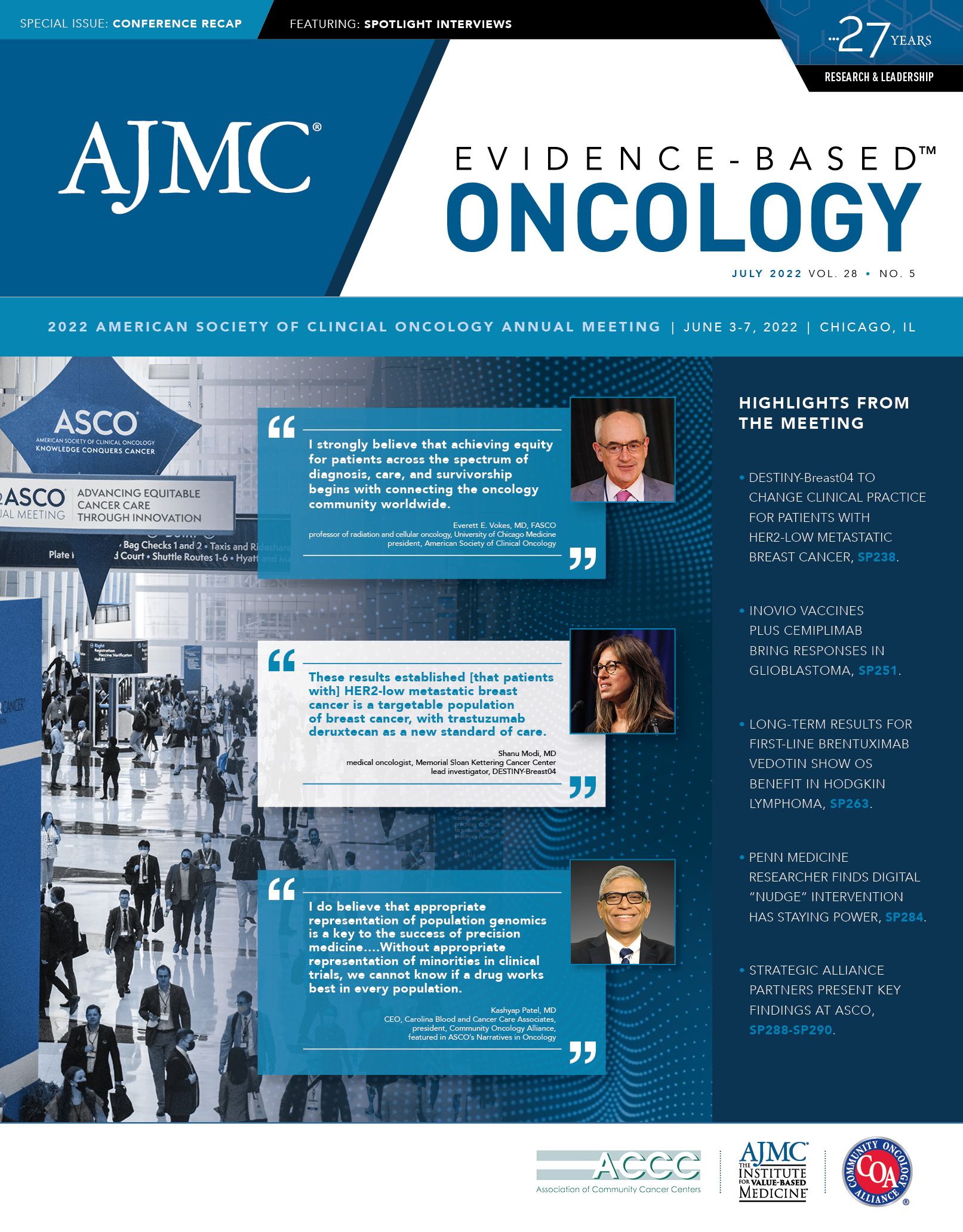- Center on Health Equity & Access
- Clinical
- Health Care Cost
- Health Care Delivery
- Insurance
- Policy
- Technology
- Value-Based Care
Cultural Humility Elucidates the Link Between Patient Spirituality, EOL Care Decisions
A presentation during the 2022 American Society of Clinical Oncology Annual Meeting addressed end-of-life care and how it is influenced by patient spirituality. One education session titled “Knowing What We Don’t Know: The Importance of Cultural Humility in Delivering High-Quality Care” made clear that much remains to be learned if clinicians and care providers are to effectively utilize cultural humility to understand the relationship between their patients’ spirituality and end-of-life and advanced care planning decisions, as well as to optimize patient care.
At the heart of a discussion on these topics is understanding the difference between cultural competence and cultural humility, emphasized Tracy A. Balboni, MD, MPH, senior physician and radiation oncologist at Dana-Farber/Brigham & Women’s Cancer Center and associate professor in radiation oncology at Harvard Medical School in Boston, Massachusetts. Balboni presented “Cultural Humility in Engaging Patient Spirituality in End-of-Life Care.”
“Cultural competence is built through the clinical encounter, where a clinician is a humble learner, using clinical skills to draw out, listen to, and respect the patient’s culture, identity, and values,” she said. “When you see it this way, this definition of cultural competence, you see cultural humility is that clinical tool and skill that’s required to build cultural competence in our interactions with our patients.”
An important tool that can help shape cultural humility regarding spirituality, and thereby help to better engage with patients, she highlighted, is the HUMBLE model from the Center to Advance Palliative Care:
- Be Humble about your assumptions
- Understand your background and culture
- Motivate yourself to learn about your patients’ backgrounds
- Begin to incorporate this knowledge into your care
- Be a Life-long learner
- Emphasize respect and collaboration when forming patient treatment plans
Balboni illustrated her point of ensuring cultural humility regarding spirituality by using the case of a 43-year-old Haitian woman with cervical squamous cell carcinoma who was referred to both radiation and medical oncology and was accompanied to all her appointments by church friends.
When this patient was up front in her faith, stating “God’s with us all the time,” her radiation oncologist quickly pivoted the discussion to treatment.
Cultural humility as a clinical skill is already used on a regular basis when evaluating patients’ clinical records because clinicians want to build their knowledge of and understand each patient’s disease. However, its use should not stop there, Balboni noted. This skill is also needed to understand a patient’s spiritual dimensions, she said.
Although these can translate elsewhere, Balboni suggests asking such questions: Does the patient have spiritual needs related to their diagnosis? What are the patient’s spiritual understandings about their illness and medical care?
She cited previous research highlighting the importance of spirituality to patients during their cancer experience, including through coping, spiritual practices (eg, prayer), and beliefs that frame their understanding of their illness. That spirituality was an independent predictor of better quality of life at end of life compared with those who reported no spiritual care.
Additionally, that spirituality influences decisions regarding medical care, particularly that given toward the end of life.
For example, Balboni noted, if they have high spiritual support from their medical team, highly religious–coping patients are almost more likely to receive hospice care, less likely to have aggressive care, and less likely to die in the intensive care unit (ICU). On the other hand, high spiritual support from religious communities frequently translates to fewer decisions to enter hospice care, a greater likelihood to get aggressive care, and a greater chance of dying in the ICU. The research she cited demonstrated a difference of 17 percentage points in patients who receive high spiritual support from their medical team vs their religious community, respectively (26% vs 43%).
“For spirituality in cancer, it’s important to many patients in dynamic ways, but it’s often neglected in cancer care. We need cultural humility to listen and provide the best care [for] our patients, including attending to their spiritual needs,” Balboni said. “It’s a clinical skill [that requires] humility, inquiry, curiosity, and respect [for] our patients. Applying that skill is necessary for building culturally competent care.”
Reference
Balboni T. Cultural humility in engaging patient spirituality in end-of-life care. Presented at: 2022 American Society of Clinical Oncology Annual Meeting; June 3-7, 2022; Chicago, IL. Accessed June 4, 2022. https://meetings.asco.org/2022-asco-annual-meeting/14209?presentation=204168#204168

Quality of Life: The Pending Outcome in Idiopathic Pulmonary Fibrosis
February 6th 2026Because evidence gaps in idiopathic pulmonary fibrosis research hinder demonstration of antifibrotic therapies’ impact on patient quality of life (QOL), integrating validated health-related QOL measures into trials is urgently needed.
Read More
Building Trust: Public Priorities for Health Care AI Labeling
January 27th 2026A Michigan-based deliberative study found strong public support for patient-informed artificial intelligence (AI) labeling in health care, emphasizing transparency, privacy, equity, and safety to build trust.
Read More
Ambient AI Tool Adoption in US Hospitals and Associated Factors
January 27th 2026Nearly two-thirds of hospitals using Epic have adopted ambient artificial intelligence (AI), with higher uptake among larger, not-for-profit hospitals and those with higher workload and stronger financial performance.
Read More
Motivating and Enabling Factors Supporting Targeted Improvements to Hospital-SNF Transitions
January 26th 2026Skilled nursing facilities (SNFs) with a high volume of referred patients with Alzheimer disease and related dementias may work harder to manage care transitions with less availability of resources that enable high-quality handoffs.
Read More
